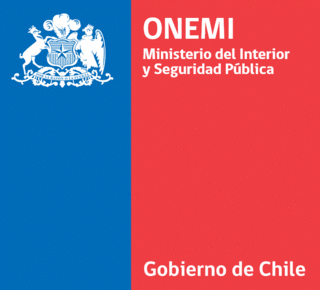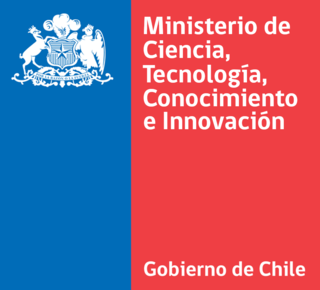
The National Congress of Chile is the legislative branch of the Republic of Chile. According to the current Constitution, it is a bicameral organ made up of a Chamber of Deputies and a Senate. Established by law No. 18678, the city of Valparaíso is its official headquarters.

Elections in Chile are held nationwide, including the presidency, parliament, regional offices, and municipal positions. Chilean citizens and foreign residents with legal residency of at least five years, who are 18 years or older on election day, are eligible to vote. Previously, voting was voluntary, but since 2023, it has become compulsory.

Lesbian, gay, bisexual, and transgender (LGBT) rights in Chile have advanced significantly in the 21st century and are now quite progressive.
Same-sex marriage has been legal in Chile since 10 March 2022. In June 2021, President Sebastián Piñera announced that his government would sponsor a bill to legalize same-sex marriage. The Senate of Chile passed the legislation on 21 July 2021, and the Chamber of Deputies gave its approval on 23 November 2021. Disagreements on some aspects of the bill led to the formation of a mixed commission to discuss it. Both chambers of the National Congress approved an identical version of the bill on 7 December 2021. President Piñera signed the legislation into law on 9 December, and it was published in the Diario Oficial de la República de Chile on 10 December. The law took effect 90 days later, with the first same-sex marriages taking place on 10 March 2022. Chile was the sixth country in South America and the 29th in the world to allow same-sex couples to marry.

The Ministry of Health of Chile, also known as MINSAL, is the cabinet-level administrative office in charge of planning, directing, coordinating, executing, controlling and informing the public health policies formulated by the President of Chile. Notably, all employees pay 7% of their monthly income to FONASA, the funding branch of the Chilean Ministry of Health.

The National Archives of Chile is a public organization of the Chilean state, created in 1927 with the goal to "collect and conserve the archives of the Departments of State and all the documents and manucsrpits related to the national history, and to oversee their organization and use". It is treated as a dependent organization of the Dirección de Bibliotecas, Archivos y Museos, which is administered by the Consejo Nacional de la Cultura y las Artes de Chile.

ONEMI or National Office of Emergency of the Interior Ministry was a Chilean government agency dedicated to the prevention, organization, coordination and information relative to natural disasters. After the 1960 Valdivia earthquake a committee was formed to solve problems caused by the earthquake. However, this committee was not dissolved afterwards and in 1974, it acquired by law independent status as governmental office.

The Ministry of Health of Argentina is a ministry of the national executive power that oversees, elaborates and coordinates the Argentine national state's public health policy. The ministry is responsible for overseeing Argentina's highly decentralized universal health care system, which according to 2000 figures, serviced over half of the country's population.

Since November 7, 2023, Chile bans unnecessary and non-consensual surgeries, procedures or medical treatments on intersex newborns, boys, girls and adolescents. Since March 15, 2022, Chile bans discrimination based on "sex characteristics" under Law 21,430 on Guarantees and Integral Protection of the Rights of Children and Adolescents. The country has the most advanced legal protection framework in Latin America.

Claudia Pascual Grau is a social anthropologist and politician from Chile, a member of the Communist Party.

The National Congress of Nicaragua was the legislature of Nicaragua before the Nicaraguan Revolution of 1979.

The National Television Council is a Chilean government agency whose function is to oversee the operation of television services.
The Anti-Barricade Law is a Chilean law created in the context of the 2019–20 Chilean protests which increases the punishments for setting up barricades, carrying out plunder or throwing objects at people or vehicles. It modifies four articles of the Penal Code of Chile:

The Constitutional Convention was the constituent body of the Republic of Chile in charge of drafting a new Political Constitution of the Republic after the approval of the national plebiscite held in October 2020. Its creation and regulation were carried out through Law No. 21,200, published on 24 December 2019, which amended the Political Constitution of the Republic to include the process of drafting a new constitution. The body met for the first time on 4 July 2021. Chilean President Sebastian Piñera said, "This Constitutional Convention must, within a period of 9 months, extendable for an additional 3 months, draft and approve a new constitution for Chile, which must be ratified by the citizens through a plebiscite." It ended its functions and declared itself dissolved on 4 July 2022.

The Ministry of Cultures, Arts and Heritage (Mincap) is the Ministry of the State of Chile in charge of the design, formulation and implementation of cultural policies, plans and programs. Its main headquarters are in Valparaíso, in a building located in Plaza Sotomayor, being the only secretariat of the Chilean State whose national address isn't located in Santiago. The current head of the ministry is Jaime de Aguirre.

Urban Wetlands Law is a Chilean law regulating wetlands in urban areas. The law intends to provide a set of "minimal criteria for the sustainability of urban wetlands, safeguarding its ecological characteristics and their functioning, and to maintain the hydrological regime, both on surface and under the ground".

The Ministry of Science, Technology, Knowledge and Innovation is the Ministry of State of Chile in charge of structuring, promoting, coordinating and promoting science, humanities and technological development activities in all their stages, to contribute to the sustainable development and social welfare of the country. It was created as a replacement for the National Commission for Scientific and Technological Research, which was in charge of the Ministry of Education. The current minister of the ministry is Silvia Díaz, who was appointed by Gabriel Boric on September 6, 2022.

Lidia Magdalena Amarales Osorio is a Chilean politician and surgeon. She is a member of the Party for Democracy (PPD). She served as Undersecretary of Public Health of her country during the first government of Michelle Bachelet between 2006 and 2008.

The University of O'Higgins (UOH) is a Chilean state university, created by law in 2015, during the second government of President Michelle Bachelet, along with the University of Aysén. It is located in the Region of Libertador General Bernardo O'Higgins. It began its operations in March 2017.

The National Service for Disaster Prevention and Response, often abbreviated as SENAPRED, is a Chilean public service responsible for advising, coordinating, organizing, planning, and supervising activities related to Disaster Risk Management in Chile. It was created by Law No. 21,364 in 2021 to replace the former National Emergency Office of the Ministry of the Interior (ONEMI), within the context of the reform of Chile's emergency management system.
















